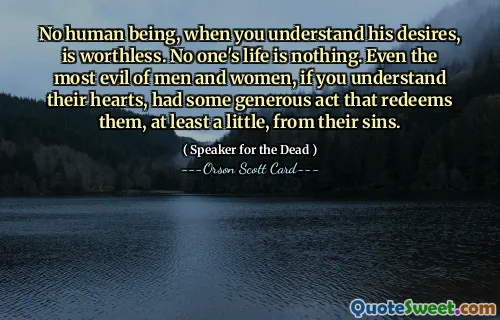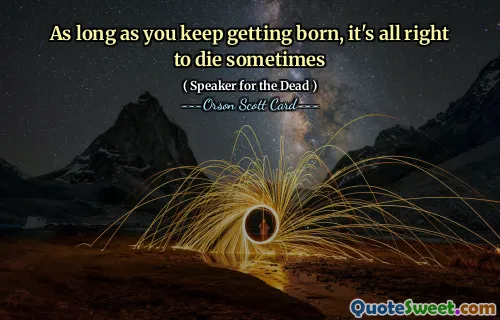
...to understand who a person really was, what his or her life really meant, the speaker for the dead would have to explain their self-story–what they meant to do, what they actually did, what they regretted, what they rejoiced in. That's the story that we never know, the story that we never can know–and yet, at the time of death, it's the only story truly worth telling.
In "Speaker for the Dead" by Orson Scott Card, the narrative emphasizes the depth of understanding required to grasp a person's true essence and the significance of their life. It posits that revealing a life story necessitates not just accomplishments and failures, but an exploration of intentions, regrets, and joys. This notion highlights the complexity of human experiences, suggesting that the real narrative behind a person's existence often remains hidden from others.
The text suggests that upon death, what truly matters is not the surface-level recounting of events, but rather the profound, personal story of one's life. This personal narrative encompasses what individuals strive for, what they have achieved, and the emotional spectrum they experienced throughout their journeys. It emphasizes that the ultimate essence of life and death lies in these untold stories, making them invaluable and uniquely meaningful.











